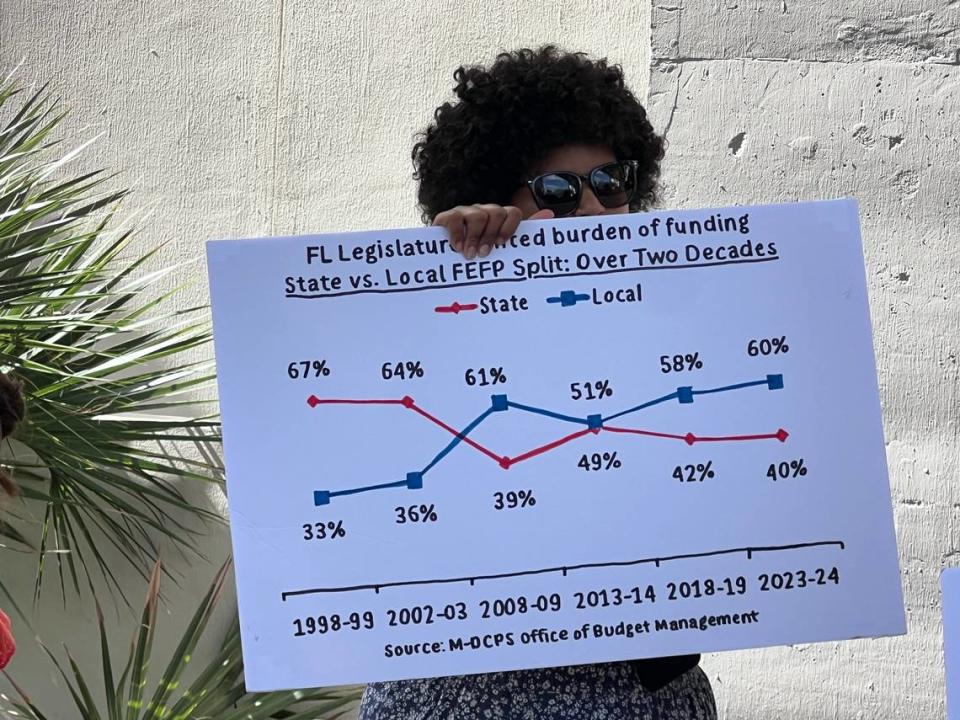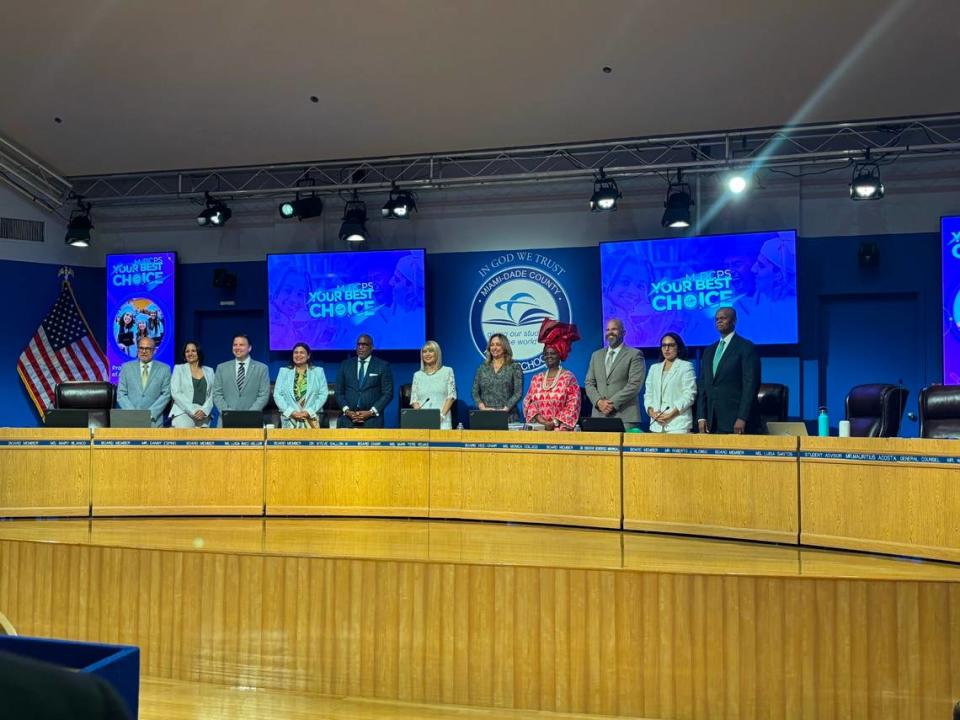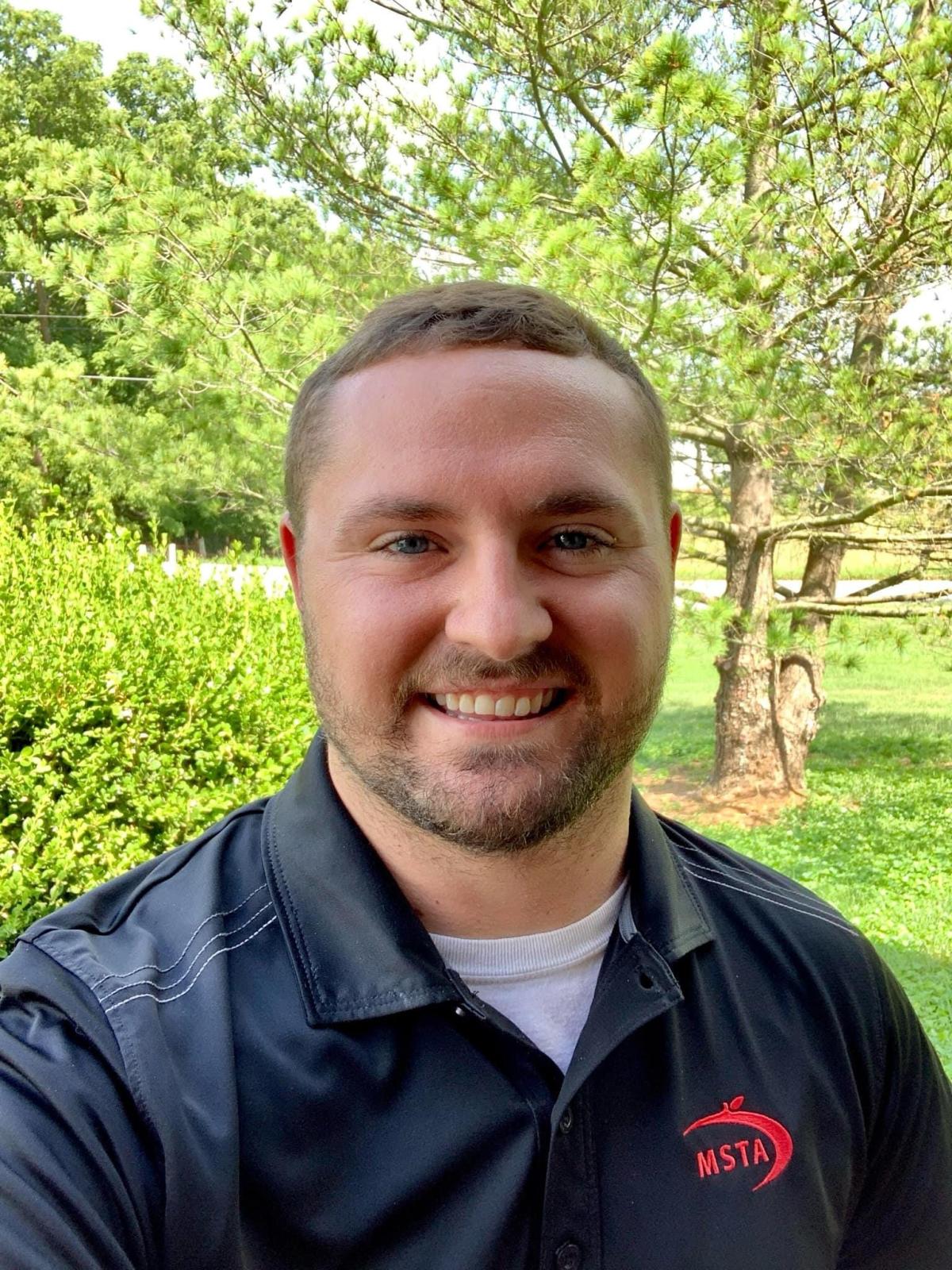Outside today’s Miami-Dade County School Board meeting, parents, advocates, policy leaders and students gathered to protest what they say is the defunding of traditional public schools.
Some came with signs that read, “We chose public schools, fully fund our choice.” Another board featured a graph illustrating the amount of state and local funding for public schools over the past two decades.

Today, the school board voted to approve new boundary changes, including the rezoning of Shadowlawn Elementary in Miami and Parkview Elementary in Miami Gardens, schools that historically serve Black and immigrant communities.
Parkview Elementary will be redesigned as a Specialized Exceptional Student Education and Full-Service Resource Center, which will house approximately 105 students. Parkview Elementary has a majority black student body.
About 74 students at Shadowlawn Elementary will be assigned to a new school under the new boundaries.
The item would also set new boundaries for Calusa Elementary, Claude Pepper Elementary, Crestview Elementary, Eneida M. Hartner Elementary, North Twin Lakes Elementary, Scott Lake Elementary, Toussaint L’Ouverture Elementary and Twin Lakes Elementary for the 2024-2025 school year.
Outside the meeting, activists argued that these changes and rezonings of school boundaries are the result of efforts to fund voucher programs and charter schools at the expense of traditional public schools.
“This is a systematic shift of dollars from public education to private schools,” said Mina Hosseini, executive director of PS 305, an education advocacy group in Miami-Dade County.
“This is a small example of something the board is forced to do based on state funding,” Hosseini said.
Ziko Fremont, a father and local business owner whose daughter just completed fifth grade at Shadowlawn Elementary, said he is disappointed his other children cannot continue attending the school. Fremont also has two children, ages 11 and 7, whom he adopted from Haiti. The 11-year-old had just adjusted to going to school in the United States and thrived in Shadowland. But next year she will have to find a new school.
One of the reasons Shadowland is closing is the physical condition of the school, Fremont said.
“Miami-Dade Public Schools knew that every school was on the verge of decline. Why can’t our school system and legislators find ways to change that?” asked Fremont, who lives across the street from Shadowlawn, near Little Haiti.
Another Shadowlawn parent, Moses Dany, said he doesn’t know where he will send his son next school year because of the rezoning.
“I don’t think closing schools should be a natural process,” said Dany, who attended public schools herself and is now a firefighter and paramedic for the city of Miramar. He said he believes public schools should receive more resources because “every child deserves a good education.”
Dr. Steve Gallon III, school board member for District 1, said before the meeting that many factors are considered when deciding whether to create new boundaries for schools — including enrollment, curriculum choices and demographics of a neighborhood.
“I understand that our public school system is now broadly defined,” Gallon said of the changes.
During the meeting, board members Roberto J. Alonso, Dr. Dorothy Bendross-Mindingall, Gallon, Mari Tere Rojas and Monica Colucci all spoke during public comment in opposition to the border changes. Board members agreed that the boundary changes were done in a transparent manner with sufficient public input.


Bendross-Mindingall, who represents District 2 where Shadowlawn Elementary School is located, said at the meeting that the boundary change is a result of the changing demographics of neighborhoods. She supported the border changes.
Parents and activists fear the conversation in Miami-Dade will eventually shift to school closures, which has dominated Broward County school board discussions. Former Superintendent Peter Licata was tasked with coming up with a plan to close, repurpose or merge several of the county’s poorly enrolled and dilapidated schools. After Licata retired due to health problems, his replacement, Howard Hepburn, put the idea of closing schools on hold for the time being. The latest plan in Broward included boundary changes and combining schools. But school closures are not off the table yet.
In Florida, legislation that facilitates school choice has dominated the agenda in recent years.
At a recent Florida Board of Education meeting in Miami, Education Commissioner Manny Diaz Jr. pointing out that parents in the state now have more options to choose whether to send their children to public, private or charter schools.
In March 2023, Governor Ron DeSantis passed legislation that made it possible for every school-age child in Florida to receive a taxpayer-funded education voucher of up to $8,000 per child. Previously, the program was limited to families with certain incomes. In the first year of the newly expanded voucher program, most of the money went to students already enrolled in private schools.
According to the Florida Policy Institute, $3.9 billion will be allocated to vouchers in Florida in the coming fiscal year.
But opponents of vouchers say the increased appropriations for vouchers are simply something that weakens our public school system.
“If you want your kids to go to private school, you have to pay for it,” said Norin Dollard, a senior policy analyst at the Florida Policy Institute, who attended the meeting outside the school board meeting.
“Public schools are a public good,” Dollard said.






